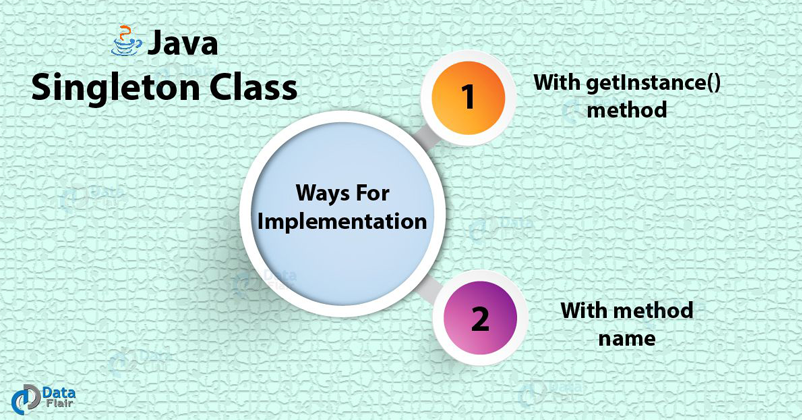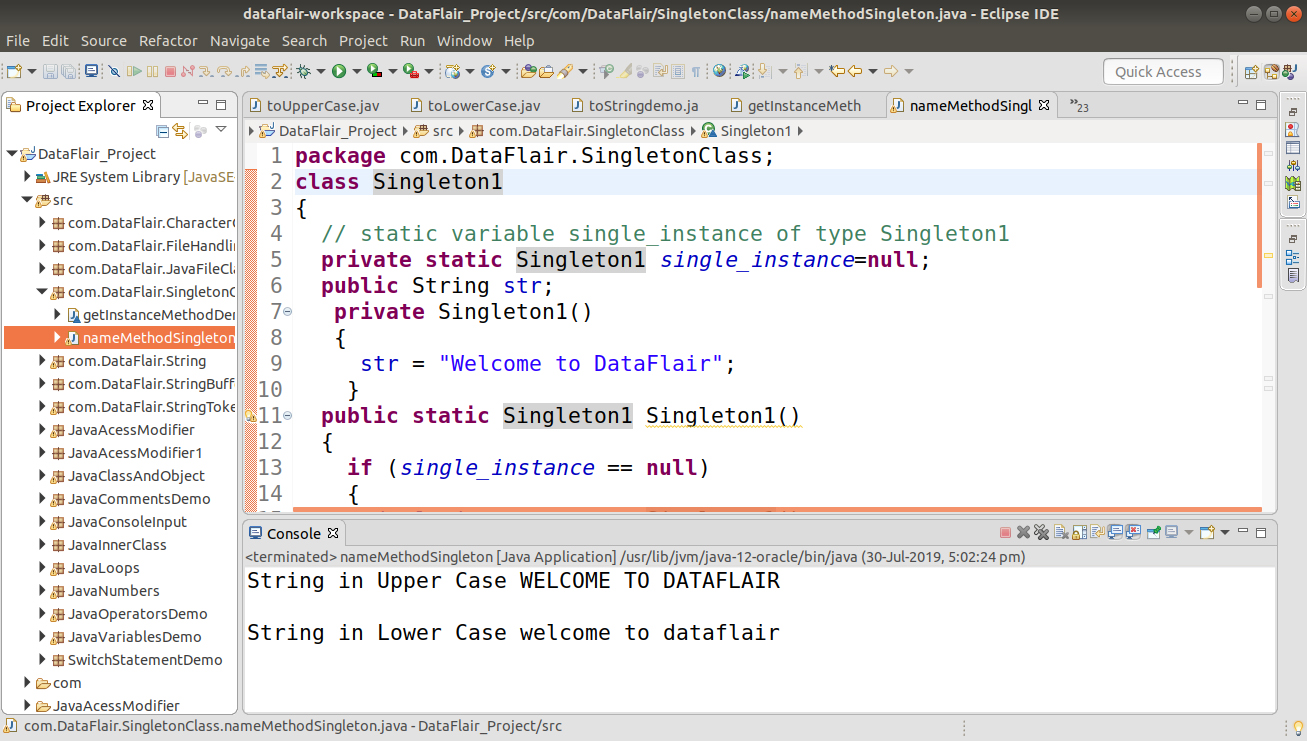Singleton Class in Java – Most Effective Ways to Implement it!
Free Java courses with 37 real-time projects - Learn Java
What is the singleton class in Java? How this class is different from the normal class? How to implement a Java singleton class? If no then you are on the right page. Here, you will get all the details about this class with the help of examples.
So, what are you waiting for? Let’s start with the introduction.
What is Singleton Class in Java?
In object-oriented programming, a singleton class is a class that can have just a single object. After the first time, if you create an object and access it with the help of the class, the new variables and methods will also point to that object. So, whatever changes you made in the first object it will make changes to all other objects because the memory between them is shared or they access a single memory.
To execute a singleton class in Java, you should keep these points in mind:
- You must make the constructor as private.
- Use a static method that has return type object of this singleton class.
Let’s revise the fundamental concept of Classes and Objects in Java
How to Implement Singleton Class in Java?
There are two ways to implement this class, let’s discuss them one by one:
1. With getInstance() method
package com.DataFlair.SingletonClass;
class Singleton
{
private static Singleton single_instance = null;
public String str;
private Singleton()
{
str = "Hello Readers!, Welcome to DataFlair's Tutorial of Java";
}
public static Singleton getInstance()
{
if (single_instance == null)
single_instance = new Singleton();
return single_instance;
}
}
class getInstanceMethodDemo
{
public static void main(String args[])
{
Singleton text1 = Singleton.getInstance();
Singleton text2 = Singleton.getInstance();
//text in upper case
System.out.println("In Upper Case : ");
text1.str = (text1.str).toUpperCase();
System.out.println("String from text1 is " + text1.str);
//text in lower case
System.out.println("In Lower Case : ");
text2.str = (text2.str).toLowerCase();
System.out.println("String from text1 is " + text2.str);
}
}
Learn 3 Types of Variables in Java with Examples
Technology is evolving rapidly!
Stay updated with DataFlair on WhatsApp!!
Explanation:
When we first-time call getInstance() method in Singleton class, it creates an object of the class with a name the object single_instance and gets back to the variable. Since single_instance is static, it is thus changed from null to some different object. Next time, if we want to call getInstance() method, since single_instance is not null, it returns to the variable, rather then by representing to Java singleton class again.
2. With name as that of a class name method
package com.DataFlair.SingletonClass;
class Singleton1
{
// static variable single_instance of type Singleton1
private static Singleton1 single_instance=null;
public String str;
private Singleton1()
{
str = "Welcome to DataFlair";
}
public static Singleton1 Singleton1()
{
if (single_instance == null)
{
single_instance = new Singleton1();
}
return single_instance;
}
}
public class nameMethodSingleton {
public static void main(String args[])
{
Singleton1 text = Singleton1.Singleton1();
Singleton1 text1 = Singleton1.Singleton1();
//text in upper case
text.str = (text.str).toUpperCase();
System.out.println("String in Upper Case " + text.str);
System.out.println("");
//text in lower case
text1.str = (text1.str).toLowerCase();
System.out.println("String in Lower Case " + text1.str);
}
}
Explanation
First of all, in the Singleton class when we call Singleton() method it creates an object of class Singleton with name single_instance and returns it to the variable. Since single_instance is static, it changes from null to some different object. Single_instance is not null, so next time if we try to call Singleton() method, it returned to the variable, instead of representing the Singleton class again.
Recommended Reading – Abstract Class in Java
Summary
With the help of getInstance() method and name as that of a class name method, we can implement the singleton class in Java. This type of class contains only one object. Furthermore, if you have any query, feel free to ask in the comment section.
Your 15 seconds will encourage us to work even harder
Please share your happy experience on Google




